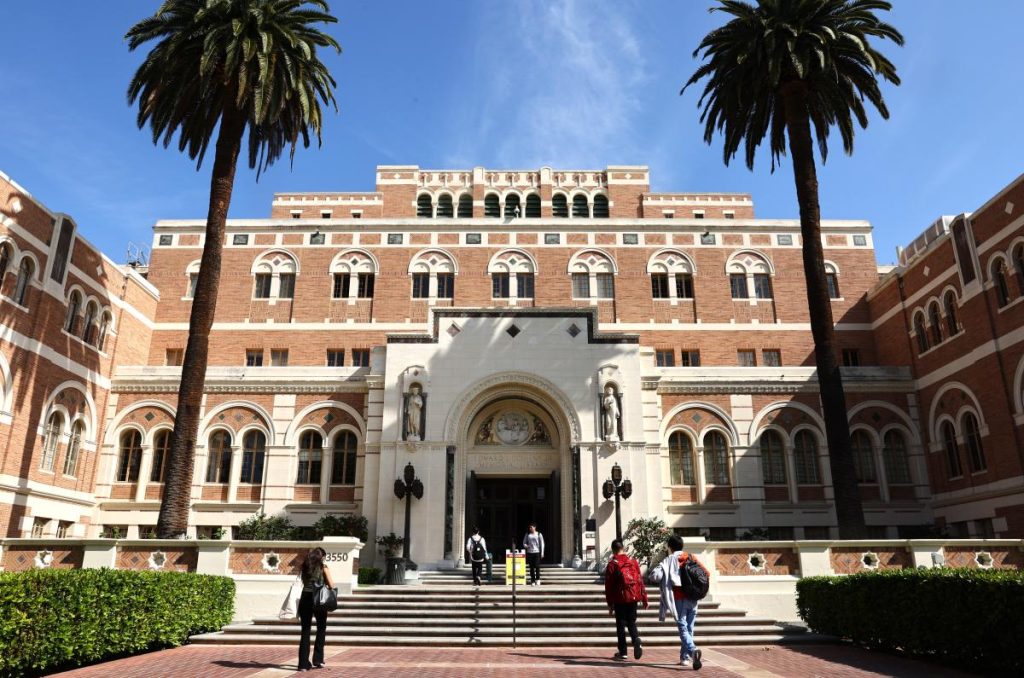The University of Southern California has announced that its valedictorian, Asna Tabassum, will no longer be delivering a graduation speech this year due to concerns about security risks related to social media chatter surrounding the Israel-Hamas conflict. Tabassum, a fourth-year student from Chino Hills, California, was selected as the valedictorian and was due to give a speech alongside two salutatorians. However, after discussions surrounding her selection took on an “alarming tenor,” the university made the decision to revoke her speaking privileges.
The decision was made following complaints from students, alumni, and others about Tabassum’s social media presence, which includes an Instagram bio linking to a pro-Palestine website. Provost Andrew Guzman stated that the intensity of feelings surrounding the situation, fueled by social media and the conflict in the Middle East, had escalated to the point where there were substantial risks relating to security and disruption at the commencement ceremony. The university’s Department of Public Safety and campus safety team have evaluated potential threats for graduation, which typically draws around 65,000 people.
Tabassum responded to the university’s decision through a statement released by the Council on American-Islamic Relations-Los Angeles, expressing disappointment at being subjected to racist hatred due to her beliefs in human rights for all. The council criticized the decision, stating that it empowers voices of hate, violates the university’s obligation to protect students, and sends a negative message to Muslim and all students who support Palestinian humanity. Calls have been made for the school to reverse its decision and allow Tabassum to speak at graduation.
The controversy surrounding Tabassum as a graduation speaker is part of a wider global debate over the Israel-Hamas conflict. The conflict intensified on Oct. 7, 2023, when Hamas militants launched a brutal attack on Israel, resulting in the deaths of approximately 1,200 people. Over 30,000 Palestinians have died in Gaza since then, with many civilians displaced and facing famine. Protests for the release of Israeli hostages and calls for a ceasefire in Gaza have increased, with those voicing support for Israelis and Palestinians on social media receiving threats.
The University of Southern California’s decision to cancel Tabassum’s speech reflects the heightened tensions and security risks associated with the Israel-Hamas conflict. While the move was made to ensure the safety of the campus and students, it has sparked criticism and calls for the decision to be reversed. The situation highlights the complexities and challenges of addressing controversial and sensitive topics, such as the Middle East conflict, in an academic setting. As the world continues to grapple with the ongoing crisis in Gaza, discussions around the conflict and its implications are likely to persist, both on social media and in academic institutions like USC.


